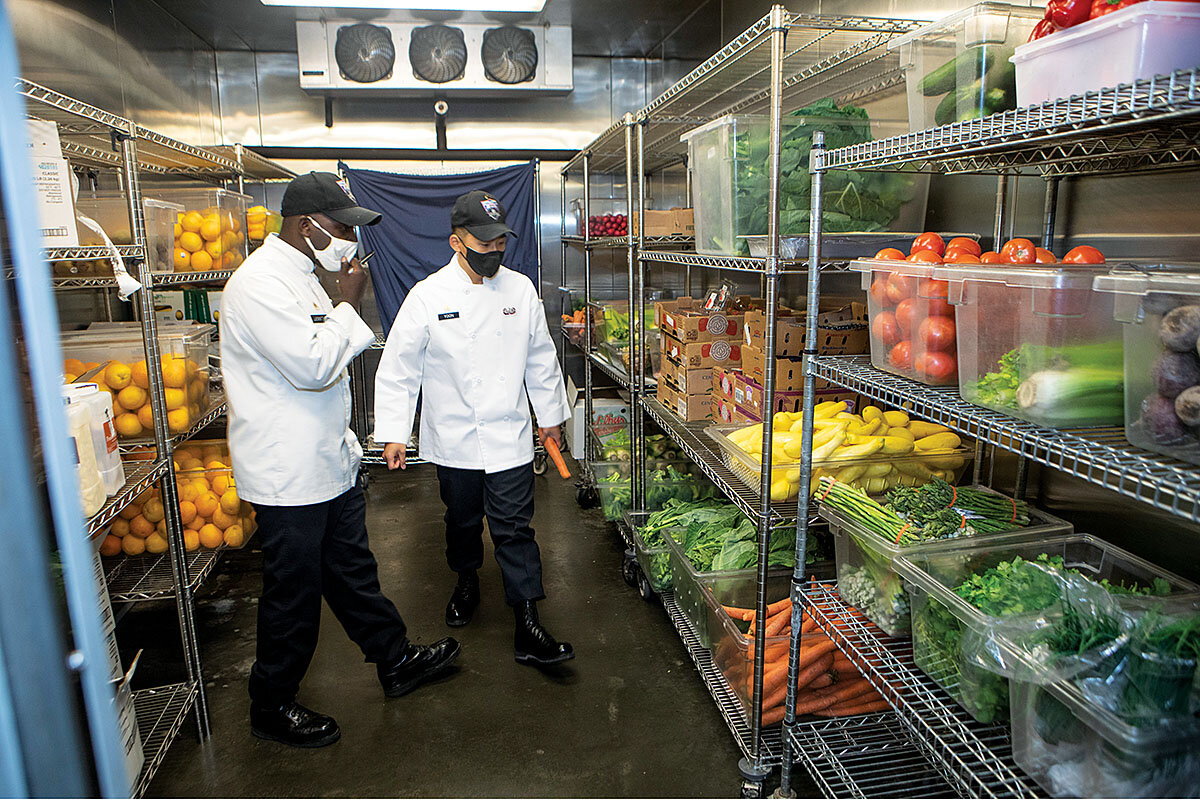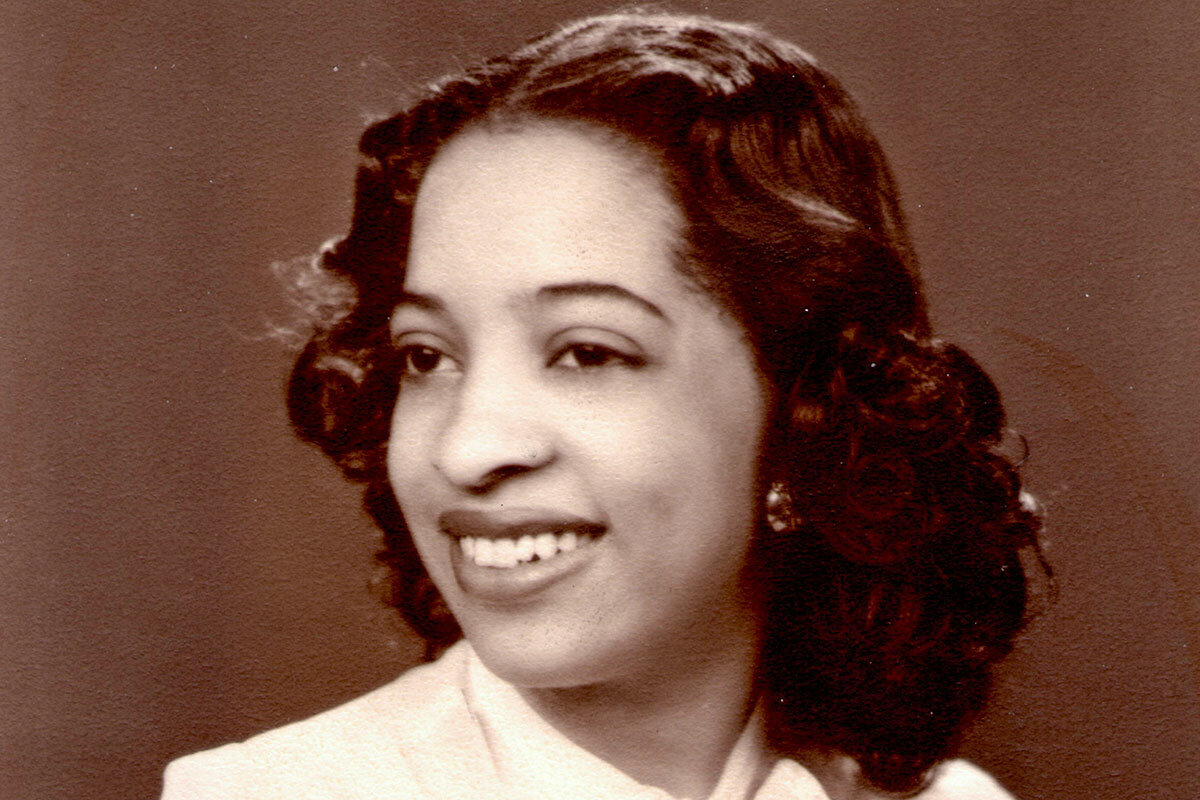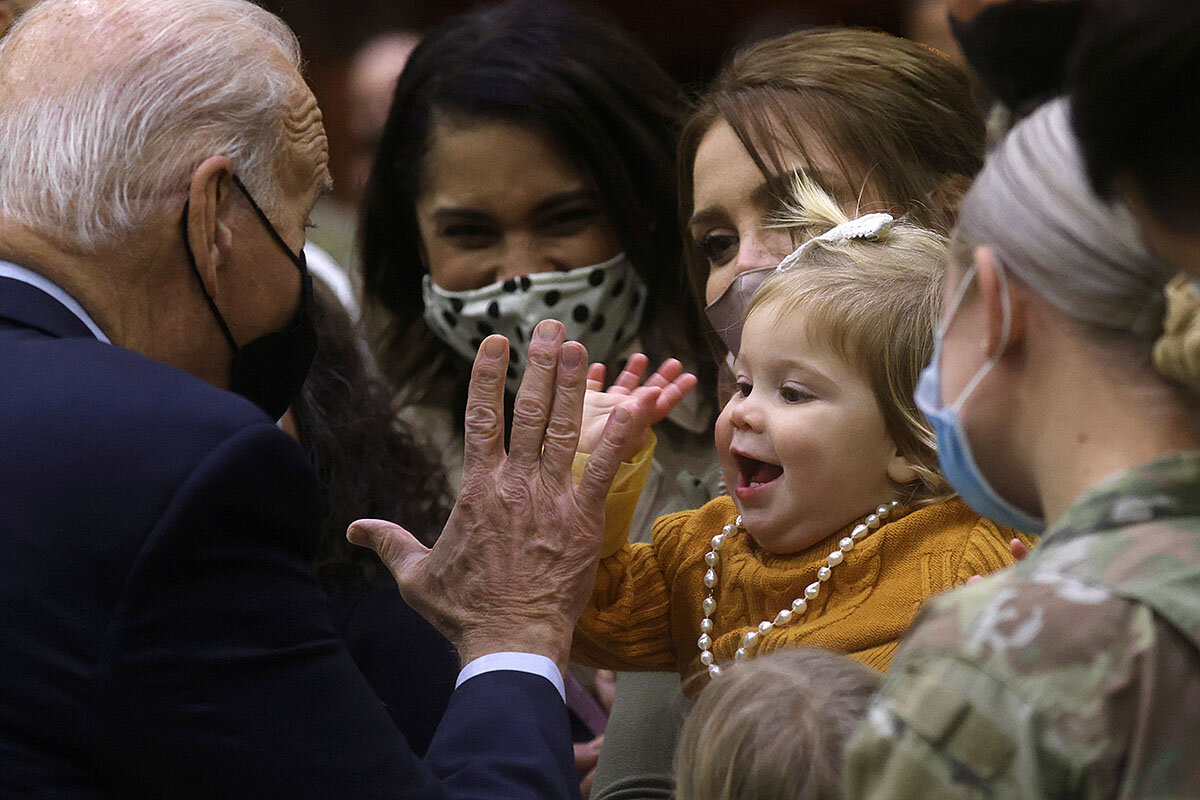A Thanksgiving meal is a way for U.S. troops to feel at home while serving far away. To many, it’s also a moment to express their gratitude to each other, their country, and those who died defending it, not to mention to get some good chow.
Monitor Daily Podcast
- Follow us:
- Apple Podcasts
- Spotify
- RSS Feed
- Download
 Mark Sappenfield
Mark Sappenfield
To call the past few years a time of upheaval is a pretty huge understatement. Now we’re witnessing what economists are calling the Great Resignation, the unprecedented decision by many Americans to voluntarily quit their jobs and ask what they really want from life.
In some ways, this time of year is about doing just that. Yes, there are big meals and presents and holiday music. But amid all that is time for reflection on what really matters.
Which raises the question: Given all we have been through – what we have learned about the preciousness of life, the amazing diversity of our humanity, the fleeting joys and persistent struggles – is it possible that we are essentially renovating our societies?
Renovations take no small amount of scaffolding and disruption. The Great Resignation might also be called the Great Reconsideration. Our expectations are changing, recalibrating along higher hopes for equality and fairness, compassion and safety, freedom and responsibility. Those are some big-ticket items. They might require punching through a few walls or some rewiring. But even amid the dust, this season shows us glimpses of what might come.
Maybe the lesson of any of our seasonal holidays is exactly what all the Hallmark cards say it is – that gratitude and goodwill and grace do matter, and that taking time to reorient our lives around them renews us. So this Thanksgiving, whether we’re at home or eating a meal with thousands of friends at Fort Bragg, it’s worth considering that the renovations we most need are the very things we are now pausing to celebrate.










